THE ECHR IS RENOUNCING ITS PRINCIPLES AND BENDING OVER BACKWARDS FOR KOVESI – Tens of thousands of Romanians are forced to wait for years in order for their complaints to be judged by the ECHR, whereas the case based solely on Kovesi’s whims has caught traction in only a few weeks. The Strasbourg Court sent questions to the Romanian Government, asking for explanations as to why she was revoked from the position of chief prosecutor of the National Anticorruption Department (DNA)
 What is currently happening at the European Court of Human Rights, under Guido Raimondi’s management, is beyond anyone’s comprehension. Laura Codruta Kovesi was aided in moving forward with her ECHR proceedings, within a few weeks, to an extent that surpasses the results registered by other Romanians’ claims in a matter of years. According to the ECHR website, Kovesi’s legal action against the Romanian state, based on claims that several of her fundamental rights had been breached during her dismissal from the position of chief prosecutor of the DNA, has already reached the phase of preliminary questions addressed to the Romanian Government.
What is currently happening at the European Court of Human Rights, under Guido Raimondi’s management, is beyond anyone’s comprehension. Laura Codruta Kovesi was aided in moving forward with her ECHR proceedings, within a few weeks, to an extent that surpasses the results registered by other Romanians’ claims in a matter of years. According to the ECHR website, Kovesi’s legal action against the Romanian state, based on claims that several of her fundamental rights had been breached during her dismissal from the position of chief prosecutor of the DNA, has already reached the phase of preliminary questions addressed to the Romanian Government.
It is uncertain whether the never-before-seen celerity which the ECHR has exhibited in its treatment of the case is the result of friendships and acquaintances in Brussels or Strasbourg, headlined by the former Minister of Justice, Raluca Pruna (seen in photo no. 2), or ECHR judge Iulia Motoc (seen in photo no. 1, together with Raimondi in the middle and Prosecutor General Augustin Lazar on the left), as revealed by the photos included in the article. What is certain is that anyone who has ever lodged a case before the ECHR is aware of how lengthy and complicated the proceedings are, as well as of what the meaning behind a 3-4 week deadline to send preliminary questions to the Government actually is. The manner in which Kovesi’s case is unfolding, however, before the ECHR, demonstrates that a carefully laid-out plan has been set into motion, with the purposes of salvaging the former DNA chief prosecutor and securing the position of European Chief Prosecutor, despite the dozens of criminal lawsuits she faces in the country, some of which she has already been named a suspect in, and is currently under criminal investigation for deeds such as bribery, abuse of office and false testimony.
The case of Laura Codruta Kovesi was registered by the ECHR with no. 3594/19 and classified as a case of level 3 importance (i.e. to be treated as urgent). The object of the case partially refers to – and we stress this matter – an alleged inability to contest her dismissal from the position of chief prosecutor of the DNA, claimed by Kovesi, as well as her statement, according to which her revocation was based on the opinions she had expressed publicly, in her official capacity.
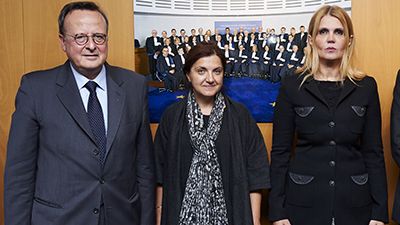 We indicate that, in her ECHR case, Laura Codruta Kovesi claimed that the following articles of the European Convention for Human Rights had been violated:
We indicate that, in her ECHR case, Laura Codruta Kovesi claimed that the following articles of the European Convention for Human Rights had been violated:
- Article 6 – the right to a fair trial;
- Article 10 – freedom of expression;
- Article 13 – the right to an effective remedy;
Kovesi, dismissed for tolerating and supporting the abuse within the DNA
Those willing to see the truth for what it is can ascertain that Kovesi’s right (seen in photo no. 3 with Ciolos and Mihnea Motoc, the husband of Judge Motoc) to contest her dismissal was not prohibited. More so, an example to this effect is General Prosecutor Augustin Lazar, who contested his dismissal in court, after it had been instructed by the Minister of Justice. And since we are on the subject of Lazar, please be reminded of his “performance” before the ECHR two weeks ago, when he put on a spectacle with his poor command of the French language.
On the other hand, the argument that her revocation from the position of chief prosecutor of the DNA was the result of the opinions she had expressed on the matter of the Justice Laws reveals the consistent and blatant misrepresentation of the truth by the former DNA chief, while an entire country is aware that her revocation was based on 20 points, which included, among other things:
- Disregard of the Romanian Constitutional Court’s decisions;
- Contesting the actions and authority of the Romanian Constitutional Court;
- Contesting the authority and actions of the Parliament;
- Intervening in other prosecutors’ investigations, which were conducted in breach of constitutional prerogatives;
- Prioritizing cases with a significant media impact;
- Attempting to obtain convictions at any cost;
- An increase in the number of acquittals;
- Kovesi’s lack of involvement in identifying and eliminating the prosecutors’ abusive behavior;
- The absence of measures in serious cases such as falsifying the transcripts of telephone conversations.
Consequently, according to the ECHR’s public information, on January 30th 2019, four questions were addressed to the Romanian Government, with respect to the manner in which Mrs. Laura Codruta Kovesi was revoked from the position of chief prosecutor of the DNA. The ECHR’s representatives wish to uncover if article 6 regarding the right to a fair trial is applicable in this case, as long as it does not involve a final decision of a court of law, but a decision rendered by Romania’s Constitutional Court, called upon to resolve a constitutional conflict between two powers of the State, not the particular situation of Laura Codruta Kovesi.
At the same time, the representatives of the ECHR asked whether Kovesi’s revocation was a result of the public opinions which she had expressed, as well as if the former DNA chief prosecutor benefitted from legal remedies to contest the decision.
Here are the four questions addressed to the Romanian Government:
1. Is Article 6 §1 of the Convention under its civil head applicable in the present case (see Baka v. Hungary (GC) no. 20261/12,23 June 2016)?
2. If so, did the applicant have access to a court for the determination of her civil rights and obligations in relation to her dismissal from the position of chief prosecutor of the National Anticorruption Prosecutor Department (DNA), in accordance with Article 6 §1 of the Convention?
3. In view of the applicant’s allegation that her dismissal was a result of the views she had publicly expressed in her professional capacity, has there been an interference with her freedom of expression, within the meaning of Article 10 §1 of the Convention? If so, was that interference prescribed by law and necessary in terms of Article 10 §2?
4. Did the applicant have at her disposal an effective domestic remedy for her Convention complaints, as required by Article 13 of the Convention?
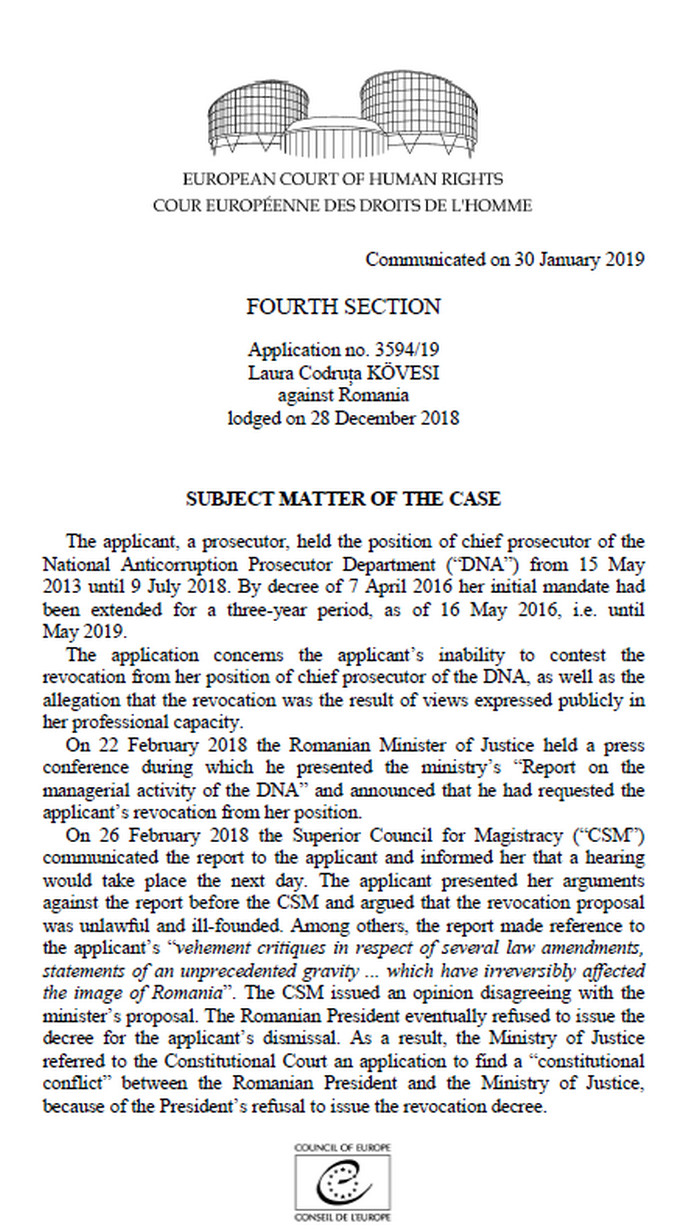
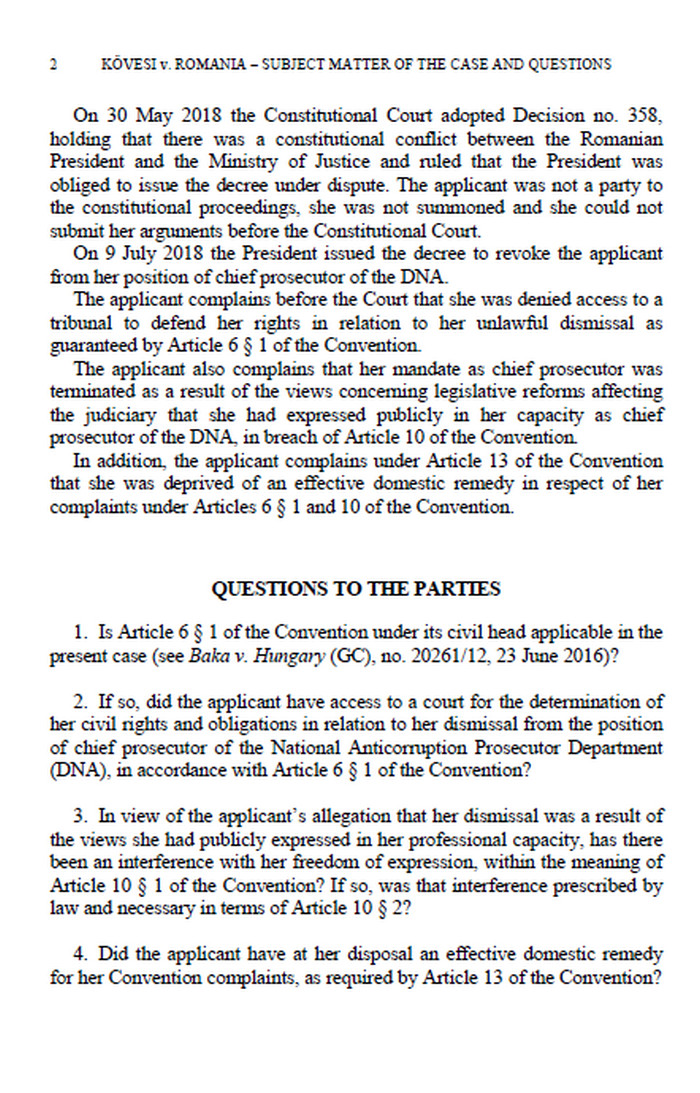
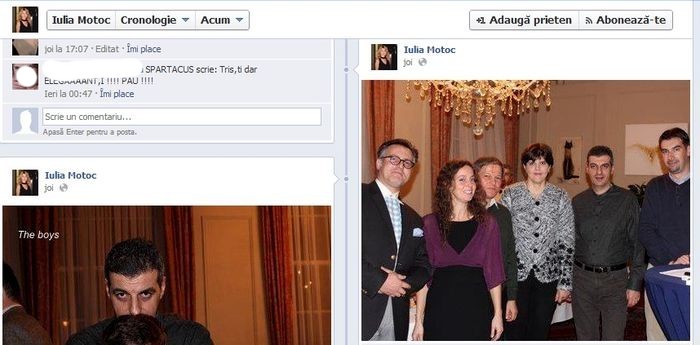
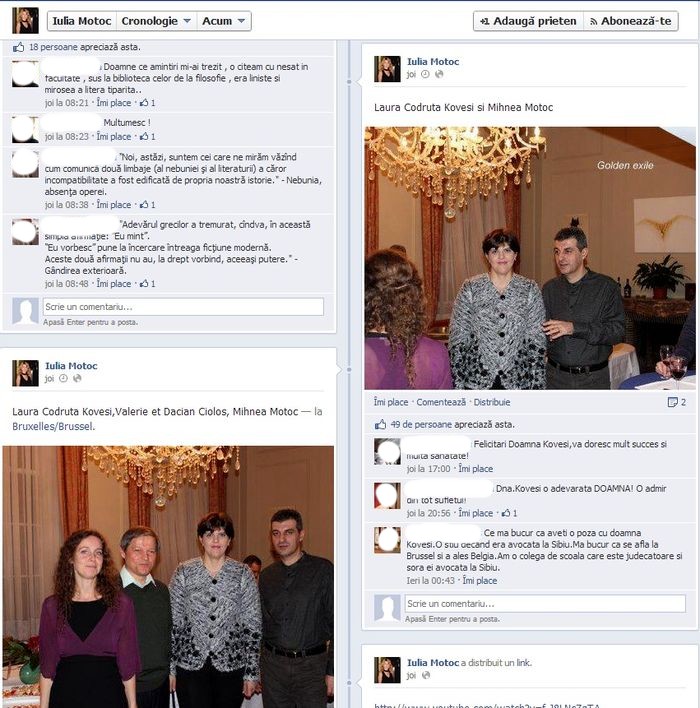
* You can find here the Romanian version of this article
Adauga comentariu
DISCLAIMER
Atentie! Postati pe propria raspundere!
Inainte de a posta, cititi aici regulamentul: Termeni legali si Conditii









 Cine ar fi meritat glonțul? Uciderea lui Charlie Kirk versus câteva cazuri șocante din justiția română
Cine ar fi meritat glonțul? Uciderea lui Charlie Kirk versus câteva cazuri șocante din justiția română 








Comentarii